IEEE Services 2022 Plenary Panel
Software Services Engineering
Plenary Panel: Software Services Engineering
Date/Time: Friday July 15
10:20 - 11:40 CET (Barcelona)
Industry observers with keen eyes have found that services computing and software engineering are becoming more and more intertwined. That is, services computing professionals and software engineers have been finding ways to intersect theories and practices that used to be more of a concern for the other camp. This emerging interdisciplinary field of study is hereby termed Software Services Engineering (SSE).
Generally speaking, Services Computing grew out of the notion of “Software as a Service” that provides a general production framework to encapsulate the underlying software functionalities meeting both functional and nonfunctional requirements – two key concerns of Software Engineering. Central to SSE, this general production framework allows for modular service requirements decomposition and modular service composition during the development, enforces end-to-end assurance of service quality, and supports the operation, maintenance and evolution of the encapsulated software functionalities instantiated as services. We have also observed that next generation of software services will become more context/situation-aware, self-aware and autonomous, ultra-mobile, ultra-fine-grained, ultra-trustworthy and driven by behaviors observed and captured from both the environment and humans of concern.
In this panel, audience will be informed of and, hopefully, intrigued by a myriad of emerging research trends and interesting topics pertaining to SSE.
Panel Chairs:
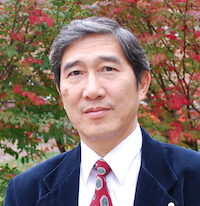 Carl K. Chang is Professor of Computer Science, Professor of Human Computer Interaction and Director of Software Engineering Laboratory in the Department of Computer Science at Iowa State University where he served as its department chair from 2002-2013. He received a PhD in computer science from Northwestern University. He worked for GTE Automatic Electric and Bell Laboratories before joining the University of Illinois at Chicago in 1984, where he directed the International Center for Software Engineering. He served as Professor and Inaugural Director for the Institute for Mobile, Pervasive, and Agile Computing Technologies (IMPACT) at Auburn University from 2001–2002, before moving to Iowa State University in July 2002. Chang was the 2004 IEEE Computer Society president. Previously he served as the Editor-in-Chief for IEEE Software (1991–1994) and Editor-in-Chief for IEEE Computer (2007–2010). He launched and spearheaded the Computing Curricula 2001 (CC2001) project jointly sponsored by the IEEE Computer Society, the ACM, and the National Science Foundation. He is a Life Fellow of IEEE, a Fellow of AAAS, and a Life Academician and an officer of the European Academy of Sciences. He received the 2000 IEEE Third Millennium Medal, the 2006 Bulgaria Academy of Sciences Marin Drinov Medal, and the 2012 IEEE Computer Society Richard E. Merwin Medal. As a three times winner of IBM Faculty Award, Chang's research interests include software engineering, human computer interaction and digital health. He is the founder of Situation Analytics based on his Situ theoretical framework.
Carl K. Chang is Professor of Computer Science, Professor of Human Computer Interaction and Director of Software Engineering Laboratory in the Department of Computer Science at Iowa State University where he served as its department chair from 2002-2013. He received a PhD in computer science from Northwestern University. He worked for GTE Automatic Electric and Bell Laboratories before joining the University of Illinois at Chicago in 1984, where he directed the International Center for Software Engineering. He served as Professor and Inaugural Director for the Institute for Mobile, Pervasive, and Agile Computing Technologies (IMPACT) at Auburn University from 2001–2002, before moving to Iowa State University in July 2002. Chang was the 2004 IEEE Computer Society president. Previously he served as the Editor-in-Chief for IEEE Software (1991–1994) and Editor-in-Chief for IEEE Computer (2007–2010). He launched and spearheaded the Computing Curricula 2001 (CC2001) project jointly sponsored by the IEEE Computer Society, the ACM, and the National Science Foundation. He is a Life Fellow of IEEE, a Fellow of AAAS, and a Life Academician and an officer of the European Academy of Sciences. He received the 2000 IEEE Third Millennium Medal, the 2006 Bulgaria Academy of Sciences Marin Drinov Medal, and the 2012 IEEE Computer Society Richard E. Merwin Medal. As a three times winner of IBM Faculty Award, Chang's research interests include software engineering, human computer interaction and digital health. He is the founder of Situation Analytics based on his Situ theoretical framework.
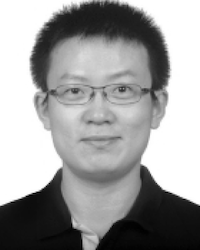 Zhongjie Wang received the Ph.D. degree in computer science from the Harbin Institute of Technology (HIT) in 2006. He is currently a Professor with the School of Computer Science and Technology, HIT. His research interests include services computing, mobile and social networking services, software architecture, social software engineering, and software repositories mining.
Zhongjie Wang received the Ph.D. degree in computer science from the Harbin Institute of Technology (HIT) in 2006. He is currently a Professor with the School of Computer Science and Technology, HIT. His research interests include services computing, mobile and social networking services, software architecture, social software engineering, and software repositories mining.
Panelists:
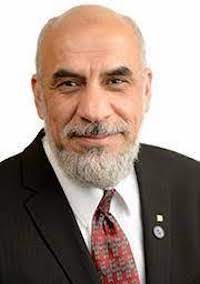 Athman Bouguettaya received his PhD in Computer Science from the University of Colorado at Boulder in the US in 1992. Before joining the University of Sydney as Professor and Head of the School of Computer Sciencein 2016, he was Professor and Head of the School of Computer Science and IT at RMIT University in Melbourne. Prior to this he was Science Leader in Service Computing at the CSIRO ICT Centre (now DATA61) in Canberra, and a tenured faculty member and program director in the Computer Science department at Virginia Polytechnic Institute and State University (Virginia Tech) in the US.
Athman Bouguettaya received his PhD in Computer Science from the University of Colorado at Boulder in the US in 1992. Before joining the University of Sydney as Professor and Head of the School of Computer Sciencein 2016, he was Professor and Head of the School of Computer Science and IT at RMIT University in Melbourne. Prior to this he was Science Leader in Service Computing at the CSIRO ICT Centre (now DATA61) in Canberra, and a tenured faculty member and program director in the Computer Science department at Virginia Polytechnic Institute and State University (Virginia Tech) in the US.
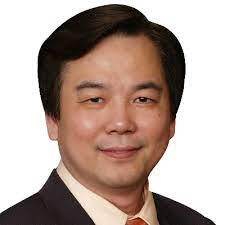 Rong N. Chang is Principal Research Staff Member at IBM T.J. Watson Research Center and a member of IBM Academy of Technology. He is leading an in-market R&D effort in creating an API-based fabric of composable enterprise microservices supporting advanced scientific discoveries. He received his Ph.D. degree in computer science & engineering from the University of Michigan at Ann Arbor in 1990. He has received eight IBM corporate-level Outstanding Technical Achievement Awards, held 30+ patents, and published 50+ refereed technical papers in the areas of distributed services computing. Dr. Chang is an Associate Editor-in-Chief of the IEEE Transactions on Services Computing (TSC) and the Awards Chair of IEEE-CS Technical Community on Services Computing (TCSVC). He is the Steering Committee Chair-Elect of IEEE World Congress on Services (SERVICES). He is the Awards Chair of 2022 IEEE SERVICES, affiliated with IEEE CLOUD, EDGE, ICDH, ICWS, QSW, and SCC.
Rong N. Chang is Principal Research Staff Member at IBM T.J. Watson Research Center and a member of IBM Academy of Technology. He is leading an in-market R&D effort in creating an API-based fabric of composable enterprise microservices supporting advanced scientific discoveries. He received his Ph.D. degree in computer science & engineering from the University of Michigan at Ann Arbor in 1990. He has received eight IBM corporate-level Outstanding Technical Achievement Awards, held 30+ patents, and published 50+ refereed technical papers in the areas of distributed services computing. Dr. Chang is an Associate Editor-in-Chief of the IEEE Transactions on Services Computing (TSC) and the Awards Chair of IEEE-CS Technical Community on Services Computing (TCSVC). He is the Steering Committee Chair-Elect of IEEE World Congress on Services (SERVICES). He is the Awards Chair of 2022 IEEE SERVICES, affiliated with IEEE CLOUD, EDGE, ICDH, ICWS, QSW, and SCC.
 Ernesto Damiani Ernesto Damiani (Senior Member, IEEE) is currently a Full Professor with the Università degli Studi di Milano, Italy, the Senior Director of the Robotics and Intelligent Systems Institute, and the Director of the Center for Cyber Physical Systems (C2PS), Khalifa University, United Arab Emirates. He is also the Leader of the Big Data Area, Etisalat British Telecom Innovation Center (EBTIC) and the President of the Consortium of Italian Computer Science Universities (CINI). He is also part of the ENISA Ad-Hoc Working Group on Artificial Intelligence Cybersecurity. He has pioneered model-driven data analytics. He has authored more than 650 Scopus-indexed publications and several patents. His research interests include cyber-physical systems, big data analytics, edge/cloud security and performance, artificial intelligence, and machine learning. He was a recipient of the Research and Innovation Award from the IEEE Technical Committee on Homeland Security, the Stephen Yau Award from the Service Society, the Outstanding Contributions Award from IFIP TC2, the Chester-Sall Award from IEEE IES, the IEEE TCHS Research and Innovation Award, and a Doctorate Honoris Causa from INSA-Lyon, France, for his contribution to big data teaching and research.
Ernesto Damiani Ernesto Damiani (Senior Member, IEEE) is currently a Full Professor with the Università degli Studi di Milano, Italy, the Senior Director of the Robotics and Intelligent Systems Institute, and the Director of the Center for Cyber Physical Systems (C2PS), Khalifa University, United Arab Emirates. He is also the Leader of the Big Data Area, Etisalat British Telecom Innovation Center (EBTIC) and the President of the Consortium of Italian Computer Science Universities (CINI). He is also part of the ENISA Ad-Hoc Working Group on Artificial Intelligence Cybersecurity. He has pioneered model-driven data analytics. He has authored more than 650 Scopus-indexed publications and several patents. His research interests include cyber-physical systems, big data analytics, edge/cloud security and performance, artificial intelligence, and machine learning. He was a recipient of the Research and Innovation Award from the IEEE Technical Committee on Homeland Security, the Stephen Yau Award from the Service Society, the Outstanding Contributions Award from IFIP TC2, the Chester-Sall Award from IEEE IES, the IEEE TCHS Research and Innovation Award, and a Doctorate Honoris Causa from INSA-Lyon, France, for his contribution to big data teaching and research.
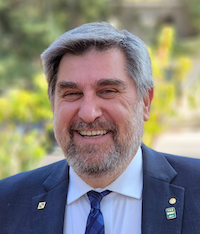 Dejan Milojicic is a distinguished technologist and director at Hewlett Packard Labs, Palo Alto, CA [1998-present]. Previously, he worked in the OSF Research Institute, Cambridge, MA [1994-1998] and Institute "Mihajlo Pupin", Belgrade, Serbia [1983-1991]. He received his PhD from the University of Kaiserslautern, Germany (1993); and his MSc/BSc from Belgrade University, Serbia (1983/86). His research interests include systems software, distributed computing, systems management, and High Performance Computing. Dejan has over 200 papers, 2 books and 68 patents. Dejan is an IEEE Fellow (2010), ACM Distinguished Engineer (2008), and HKN and USENIX member. Dejan was on 8 PhD thesis committees, and he mentored over 50 interns. Dejan was president of the IEEE Computer Society (2014), IEEE presidential candidate in 2019, editor-in-chief of IEEE Computing Now (2008-2012) and IEEE Distributed Systems Online (2008-2009) and he has served on many editorial boards and TPCs. Dejan led large industry-government-university collaborations, such as Open Cirrus (2007-2011) and New Operating System (2014-2017).
Dejan Milojicic is a distinguished technologist and director at Hewlett Packard Labs, Palo Alto, CA [1998-present]. Previously, he worked in the OSF Research Institute, Cambridge, MA [1994-1998] and Institute "Mihajlo Pupin", Belgrade, Serbia [1983-1991]. He received his PhD from the University of Kaiserslautern, Germany (1993); and his MSc/BSc from Belgrade University, Serbia (1983/86). His research interests include systems software, distributed computing, systems management, and High Performance Computing. Dejan has over 200 papers, 2 books and 68 patents. Dejan is an IEEE Fellow (2010), ACM Distinguished Engineer (2008), and HKN and USENIX member. Dejan was on 8 PhD thesis committees, and he mentored over 50 interns. Dejan was president of the IEEE Computer Society (2014), IEEE presidential candidate in 2019, editor-in-chief of IEEE Computing Now (2008-2012) and IEEE Distributed Systems Online (2008-2009) and he has served on many editorial boards and TPCs. Dejan led large industry-government-university collaborations, such as Open Cirrus (2007-2011) and New Operating System (2014-2017).
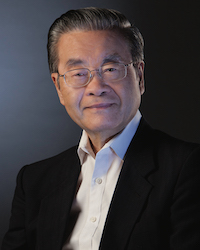 Stephen S.Yau is Professor of Computer Science and Engineering, School of Computing and Augmented AI (SCAI) at Arizona State University (ASU). He served as the chair of the Department of Computer Science and Engineering in 1994 - 2001, and later as the director of Information Assurance Center at ASU. Previously, he was on the faculties of Northwestern University, Evanston, Illinois, and University of Florida, Gainesville. He served as the president of the IEEE Computer Society and the editor-in-chief of IEEE COMPUTER magazine. He also served as the president of the American Federation of Information Processing Societies. He organized many major conferences, including the 1989 World Computer Congress sponsored by the International Federation for Information Processing, and the 2018 IEEE World Congress on Services. His current research includes services computing, cybersecurity, software engineering, IoT and applications of blockchain and machine learning. He is a Fellow of the IEEE and the American Association for the Advancement of Science. He received the Ph.D. degree from the University of Illinois, Urbana, in electrical engineering.
Stephen S.Yau is Professor of Computer Science and Engineering, School of Computing and Augmented AI (SCAI) at Arizona State University (ASU). He served as the chair of the Department of Computer Science and Engineering in 1994 - 2001, and later as the director of Information Assurance Center at ASU. Previously, he was on the faculties of Northwestern University, Evanston, Illinois, and University of Florida, Gainesville. He served as the president of the IEEE Computer Society and the editor-in-chief of IEEE COMPUTER magazine. He also served as the president of the American Federation of Information Processing Societies. He organized many major conferences, including the 1989 World Computer Congress sponsored by the International Federation for Information Processing, and the 2018 IEEE World Congress on Services. His current research includes services computing, cybersecurity, software engineering, IoT and applications of blockchain and machine learning. He is a Fellow of the IEEE and the American Association for the Advancement of Science. He received the Ph.D. degree from the University of Illinois, Urbana, in electrical engineering.